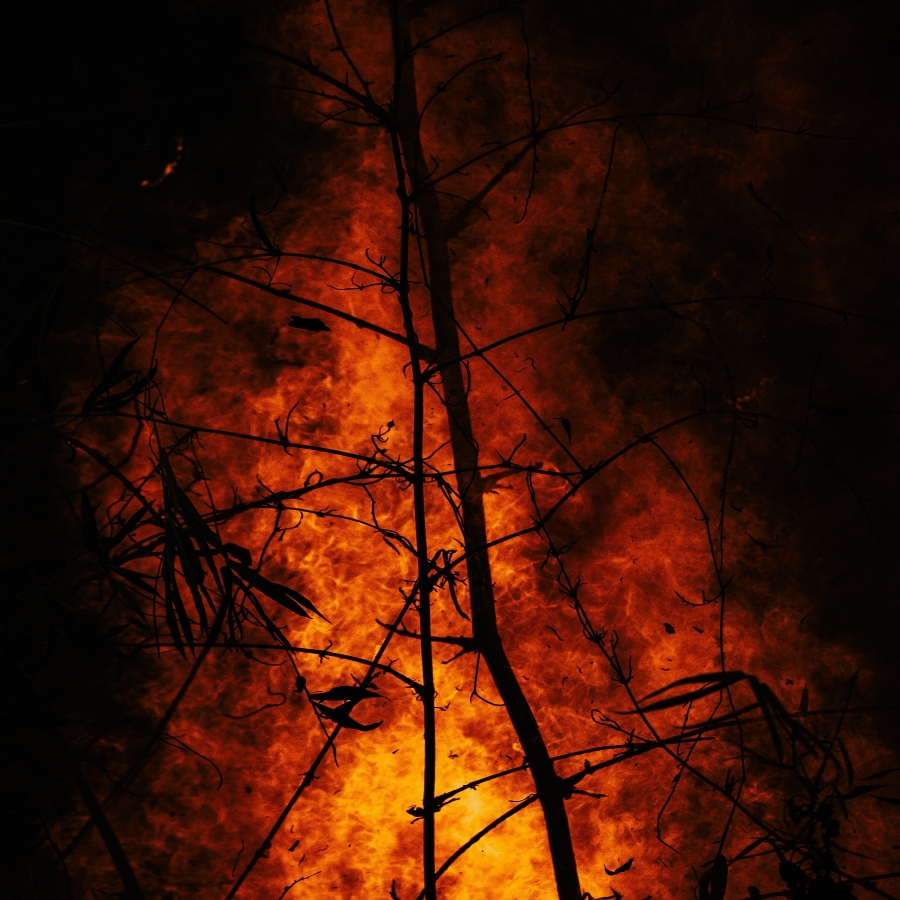Punch Me
he tells his son. It’s okay. You need to learn.
Tenderly, the father kneels, and the boy makes a four-year-old fist, aims for the broad chest, tensed and squared and fleshier than the father remembers himself. Little knuckles against aging skin. A slapping sound.
Not like that, he says. Not with that side. With this one.
He demonstrates in slow motion. The boy studies his father’s hand as it approaches: the flat, hairy planes of it, the calluses. It stops just short of connecting with his tiny shoulder, but the boy hasn’t yet learned to flinch. Instead he lifts his face until he finds his own reflection in the glass of his father’s eyes, a blurred version of himself, watery, like the time he tripped in the rain and fell flat on his stomach just above a puddle, still rippling with wind although the storm had almost passed.
The father looks behind at his life and sees: the bus stop where they pushed him into the street, the classroom where they tied his ankles to a chair, the cafeteria where they poured ketchup down his pants, the park where they stole his bike before dusk, the student lot where they keyed COCKSUCKER across the hood, the party where they took turns peeing into his beer, the locker room where they trapped him and touched him and tore his clothes and left him there, bloody and naked.
The boy looks ahead at his life and sees: beauty.
Try again, the father says, and his son does as he’s told.
A Gathering of Fireflies
The child presses one sticky finger to the window, toward the hilltop, and asks if this is how clouds are made: thick wisps of smoke spiraling above the trees, gentle puffs of impending damage. Dispersing. Disappearing.
No, the child’s mother starts to say, and she considers calling it a bonfire—have you ever heard of them, my sweet?—its warmth only for charred marshmallows and numbed toes, its crackle only for soothing everyone to sleep. She considers calling it a celebration of fireworks, a parade of rocket ships, a wishfall of stars, anything innocent and beautiful to explain this strange new brightness in the night sky.
Yes, she says instead. That is how clouds are made.
While she packs a suitcase, they talk about colors: Green leaves that sometimes glow orange. Blue skies that sometimes turn black. Almost like a bruise, she says, kneeling, touching tenderly the marks along each tiny shin. The child clutches a yellow duck in one soft-skinned fist, rubs at the tufts of fur.
But it’s more of a mountain than a hilltop. And it is not a bonfire, and they are not fireflies, and sometimes the smoke goes deep, deep gray.
The Difference Between an Earthquake and a Storm
It rocks you awake, sweetheart. Almost gently, the ground bubbling beneath your bed, and for a moment you can pretend you are nestled once again in an elbow’s crook, that you have not grown up, that you are not alone. It disorients: Why is the whole world shivering? Just as you identify it, just as you give it a name, it ends—if you are already moving, you might not notice it at all.
It lulls you to sleep, the thrumming. It soothes: The machine you needed for naptime, white noise tucked into the belly of a stuffed owl. Preset 1: Wind. Presets 2, 3, and 4: Ocean, Birds, and Cloudburst, respectively, the rain like static. Even lightning calms you—each rumble of thunder is just a heartbeat.
*
Everywhere feels different but looks the same. There is still sun and light, or stars and dark, whatever existed before the air began to quaver, all the objects wobbling as if disturbed by something spectral. The hands of a ghost. Maybe a portrait comes unhinged and crashes to the floor. Maybe the street goes jagged, a crumbling bolt split through the pavement, the damage invisible until something is destroyed.
Everywhere you look, there it is. On the rattling windows and the flooding lawn, all the gray heavy with wet. You can breathe it, you once told me it has a smell. Like sharp, you said. Like safe. Your footprints—mud-coated, staining the floors, proof of you. I will never see a puddle and not want to reach for your hand. I will jump, even when I’ve forgotten my coat and boots, even when I am helpless and unprotected.
*
You asked questions beyond your years:
Do superheroes always win?
Which one is worse, an earthquake or a storm?
When I hug you, why do you hold me sooo long?
Did you know some things self-destruct? Just break, all on their own?
*
Now that I’ve finally learned the answer, you won’t listen. One of them you can see coming, and the other—out of nowhere—is a catastrophic act of defiance.

